

E-Books → Dutch Cookbook for the Whole Family Simplified Traditional Dutch Recipes
Published by: voska89 on 11-08-2021, 00:50 |  0
0
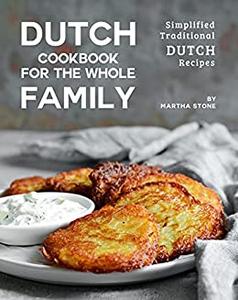
Dutch Cookbook for the Whole Family: Simplified Traditional Dutch Recipes by Martha Stone
English | June 1, 2021 | ISBN: N/A | ASIN: B096C4BH7Z | 89 pages | EPUB | 3.61 Mb
Even small countries tend to have many different variations of dishes and claim that the true way is the one they know. But now it's not about that, it's about trying and enjoy Dutch recipes that I know from my mum.
Video Training → The Milky Way - Family Retreat 2021 with Ashly Collins
Published by: voska89 on 11-08-2021, 00:18 |  0
0

The Milky Way - Family Retreat 2021 - Ashly Collins - Family Maternity Sessions
Genre: eLearning | Language: English
As you watch Ashly capture emotion-filled family moments during a number of maternity sessions, she will talk you through styling, location choice, lighting and posing. She discusses how to get pregnant mamas to feel relaxed and empowered, and how to seamlessly blend both younger and older children into these special family sessions. Finally, Ashly shows her typical editing workflow using Photoshop and Portraiture. Editing shown: yes
E-Books → The Browns of California The Family Dynasty that Transformed a State and Shaped a Nation[Audiobook]
Published by: voska89 on 9-08-2021, 01:12 |  0
0
![The Browns of California The Family Dynasty that Transformed a State and Shaped a Nation[Audiobook] The Browns of California The Family Dynasty that Transformed a State and Shaped a Nation[Audiobook]](https://i115.fastpic.org/big/2021/0809/76/4a2aad73c357949eeaf4cf772c4c5476.jpeg)
English | Sep 18, 2019 | ISBN: 9781515942818 |MP3|M4B | 18 hours | 531 MB | Narrated by Christina Delaine
A Pulitzer Prize-winning journalist's panoramic history of California and its impact on the nation, from the Gold Rush to Silicon Valley - told through the lens of the family dynasty that led the state for nearly a quarter century.
In The Browns of California, journalist and scholar Miriam Pawel weaves a narrative history that spans four generations, from August Schuckman, the Prussian immigrant who crossed the Plains in 1852 and settled on a northern California ranch, to his great-grandson Jerry Brown, who reclaimed the family homestead 140 years later. Through the prism of their lives, we gain an essential understanding of California and an appreciation of its importance.
E-Books → Taking on the Bully (taxman) A Pioneer Family Fight to Hold Canada Revenue Agency Accountable
Published by: voska89 on 9-08-2021, 01:03 |  0
0
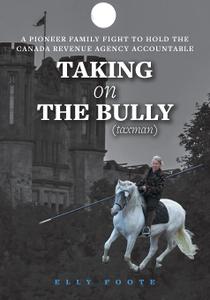
Taking on the Bully (taxman): A Pioneer Family Fight to Hold Canada Revenue Agency Accountable
by Elly Foote, Nathan Clark Foote
English | ISBN: 1525595873, 1525595865 | 300 pages | EPUB | June 9, 2021 | 35 Mb
E-Books → Riddles and Jokes For Kids and Family
Published by: voska89 on 9-08-2021, 01:01 |  0
0
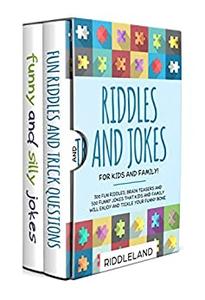
Riddles and Jokes For Kids and Family: 300 Fun Riddles, Brain Teasers and 500 Funny Jokes That Kids and Family Will Enjoy and Tickle Your Funny Bone - Ages 5-7 7-9 9-12 by Riddleland
English | December 14, 2018 | ISBN: 1791504671 | 200 pages | EPUB | 0.31 Mb
Get ready for some unforgettable family fun with this massive jokes collection for children of all ages!
E-Books → What Money Can't Buy Family Income and Children's Life Chances
Published by: voska89 on 7-08-2021, 21:44 |  0
0
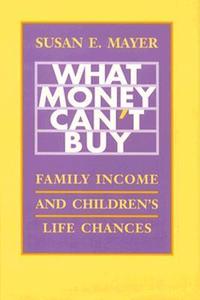
What Money Can't Buy: Family Income and Children's Life Chances By Susan E. Mayer
1997 | 230 Pages | ISBN: 0674587332 | PDF | 3 MB
"Children from poor families generally do a lot worse than children from affluent families. They are more likely to develop behavioural problems, to score lower on standard tests, and to become adults in need of public assistance. This book asks whether income directly affects children's life chances, or if the factors that cause parents to have a low income also impede their children's life chances. The question of causation is explored, comparing the value of income from different sources, to determine if the value of a dollar from welfare is as high as the value of a dollar from wages. Parents' income after an event, such as teenage childbearing, is also investigated in order to establish whether it can predict that event, if so this suggests that income is a proxy for unmeasured characteristics that affect both income and the event. The author also compares children living in states that pay high welfare benefits to those with low benefits.""Children from poor families generally do a lot worse than children from affluent families. They are more likely to develop behavior problems, to score lower on standardized tests, and to become adults in need of public assistance.Susan Mayer asks whether income directly affects children's life chances, as many experts believe, or if the factors that cause parents to have low incomes also impede their children's life chances. She explores the question of causation with remarkable ingenuity. First, she compares the value of income from different sources to determine, for instance, if a dollar from welfare is as valuable as a dollar from wages. She then investigates whether parents' income after an event, such as teenage childbearing, can predict that event. If it can, this suggests that income is a proxy for unmeasured characteristics that affect both income and the event. Next she compares children living in states that pay high welfare benefits with children living in states with low benefits. Finally, she examines whether national income trends have the expected impact on children. Regardless of the research technique, the author finds that the effect of income on children's outcomes is smaller than many experts have thought.Mayer then shows that the things families purchase as their income increases, such as cars and restaurant meals, seldom help children succeed. On the other hand, many of the things that do benefit children, such as books and educational outings, cost so little that their consumption depends on taste rather than income. Money alone, Mayer concludes, does not buy either the material or the psychological well-being that children require to succeed. ""No social scientist believes that income is the sole determinant of how children turn out, but most believe that parental income has an important influence on children, and some believe it is the single most important influence on children's life chances. Indeed, many argue that other factors that increase the risk of failure among children, such as growing up in a single-parent family, are hazardous mainly because they decrease parental income. When I first began to write this book, I too believed this. At one time I was a young single mother without much money. I know what it is like not to be able to afford a pair of jeans or a birthday cake for your child, to have to borrow money to pay a doctor's bill, and to worry about a child left home alone after school because there is no money for child care. To paraphrase Sophie Tucker,I have been poor and I have been not so poor and not so poor is better. But my belief in the importance of income to children's well-being was not based on personal experiences alone; it was also based on a large body of social science research.Although the empirical studies with which I was familiar did not agree on how much influence parents' income had on any particular measure of children's well-being, none suggested that its effect was negative, and the best evidence suggested that it was quite important for many outcomes. My own preliminary research also showed that parental income had large effect on teenage childbearing, dropping out of high school, and children's eventual educational attainment, even after I held constant characteristics such as parents' race, education, and age.Empirical evidence also suggested that the effect of income on children's outcomes was usually what statisticians call "nonlinear," meaning that an extra dollar would help poor children more than it would help rich children. If this were the case, transferring income from the rich to the poor would usually help poor children more than it would hurt rich children.I recognized, of course, that many Americans discounted the importance of income, arguing that how children turn out largely depends on their parents' moral character, social skills, intelligence, and other characteristics. If this were true, increasing the income of low-income families might not help their children. But the evidence I had seemed to show that income had a greater effect on adults' character than character had on income. Furthermore, whereas most Americans now believe that income transfers discourage work and marriage, my reading of the research convinced me that such effects were quite small. Compared with other ways of helping low-income children, increasing parental income through income transfer, child tax credits, child support payments, and the Earned Income Tax Credit (EITC) seemed like simple, effective, and efficient ways to help more children grow up to be productive, law-abiding citizens.As it turned out, however, the relationship between parental income and children's outcomes is more complicated than I first imagined. In most cases, additional parental income does improve children's chances for success. But parental income is not as important to children's outcomes as many social scientists have thought. This is because the parental characteristics that employers value and are willing to pay for, such as skills, diligence, honesty, good health, and reliability, also improve children's life chances, independent of their effect on parents' income. Children of parents with these attributes do well even when their parents do not have much income.This conclusion flies in the face of the common liberal claim that "the poor are just like everyone else except that they have less money." But this claim has always been a half-truth. Almost noone believes that the average welfare recipient is just like the average CEO or the average schoolteacher. The rich and the poor have far more in common than the rich generally admit, but giving poor parents more cash will not make them just like the well-to-doin all respects. The crucial question, therefore, is whether the things that extra money can buy make a big difference to children. When extra money prevents hunger or homelessness, or when it buys medical care and other necessities, it can make a big difference to children. But in the United States most poor families can meet these basic material needs through a combination of Food Stamps, Medicaid, housing subsidies, government income transfers, and private transfers of cash, goods, and services. Under these circumstances the question is seldom whether money for basic necessities would help children, but usually whether money for goods and services beyond some minimum would significantly increase a child's chances for success.In this book I assess the effect of parental income on young children, teenagers, and young adults. I look at young children's cognitive skills and behavior problems, whether teenagers drop out of high school, whether teenage girls have babies, whether young women become single mothers, the number of years of schooling completed by young adults, young men's wages and earnings, and what I call male "idleness" - the chance that a twenty-four-year-old male who is not in school did no paid work in the previous year....We are likely to repeat the same cycle of policies over the next hundred years unless new information sheds light on the old questions of what money can and cannot buy. Thus this book is about what money can buy for children....None of these strategies would be completely convincing by itself. But all five strategies lead to the conclusion that conventional models overstate the importance of income to children's outcomes. They also show that the effect of income per se on most outcomes is smaller than many researchers have thought."
E-Books → Black Gotham A Family History of African Americans in Nineteenth-Century New York City
Published by: voska89 on 7-08-2021, 21:30 |  0
0
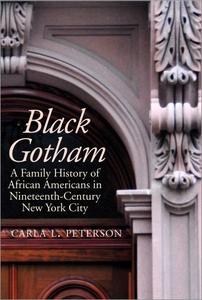
Black Gotham: A Family History of African Americans in Nineteenth-Century New York City by Carla L. Peterson
English | February 22, 2011 | ISBN: 0300162553, 0300181744 | EPUB | 446 pages | 4.6 MB
A groundbreaking history of elite black New Yorkers in the nineteenth century, seen through the lens of the author's ancestors
E-Books → The Dog Who Healed a Family And Other True Animal Stories That Warm the Heart and Touch the Soul[Audiobook]
Published by: voska89 on 6-08-2021, 17:32 |  0
0
![The Dog Who Healed a Family And Other True Animal Stories That Warm the Heart and Touch the Soul[Audiobook] The Dog Who Healed a Family And Other True Animal Stories That Warm the Heart and Touch the Soul[Audiobook]](https://i115.fastpic.org/big/2021/0806/b5/41f5766604e517a4f56794e56f0269b5.jpeg)
English | Sep 29, 2020 | ISBN: 9781488209499 |MP3|M4B | 4 hours | 138 MB | Narrated by Dara Rosenberg
In this charming collection of nineteen stories, you can't help but fall in love with the unlucky fawn who is saved by a nursing home, the troublesome rabbit who warms her way into a new family and the good (German) shepherd who comforts the sick. These are stories of hope, humor, triumph, loyalty, compassion, life and even death-but most of all, these are stories of love and the extraordinary animals who make our lives the richer for it.
[center]
Video Training → The Milky Way - Family Retreat 2021
Published by: voska89 on 6-08-2021, 06:16 |  0
0

The Milky Way - Family Retreat 2021
Genre: eLearning | Language: English
Take your family sessions (and confidence!) to the next level!
E-Books → Ageing, Gender and Family Law
Published by: voska89 on 5-08-2021, 22:20 |  0
0
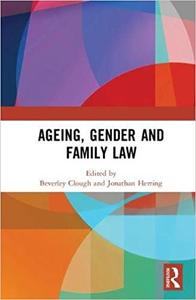
Ageing, Gender and Family Law by Beverley Clough and Jonathan Herring
English | Mar 26, 2018 | ISBN: 1138744948, 0367404435 | 254 pages | PDF | 2 MB
This book explores the intersecting issues relating the phenomenon of ageing to gender and family law. The latter has tended to focus mainly on family life in young and middle age; and, indeed, the issues of childhood and parenting are key in many family law texts. Family life for older members has, then, been largely neglected; addressing this neglect, the current volume explores how the issues which might be important for younger people are not necessarily the same as those for older people. The significance of family, the nature of family life, and the understanding of self in terms of one's relationships, tend to change over the life course. For example, the state may play an increasing role in the lives of older people - as access to services, involvement in work and the community, the ability to live independently, and to form or maintain caring relationships, are all impacted by law and policy. This collection therefore challenges the standard models of family life and family law that have been developed within a child/parent-centred paradigm, and which may require rethinking in the turn to family life in old age. Interdisciplinary in its scope and orientation, this book will appeal not just to academic family lawyers and students interested in issues around family law, ageing, gender, and care; but also to sociologists and ethicists working in these areas.



